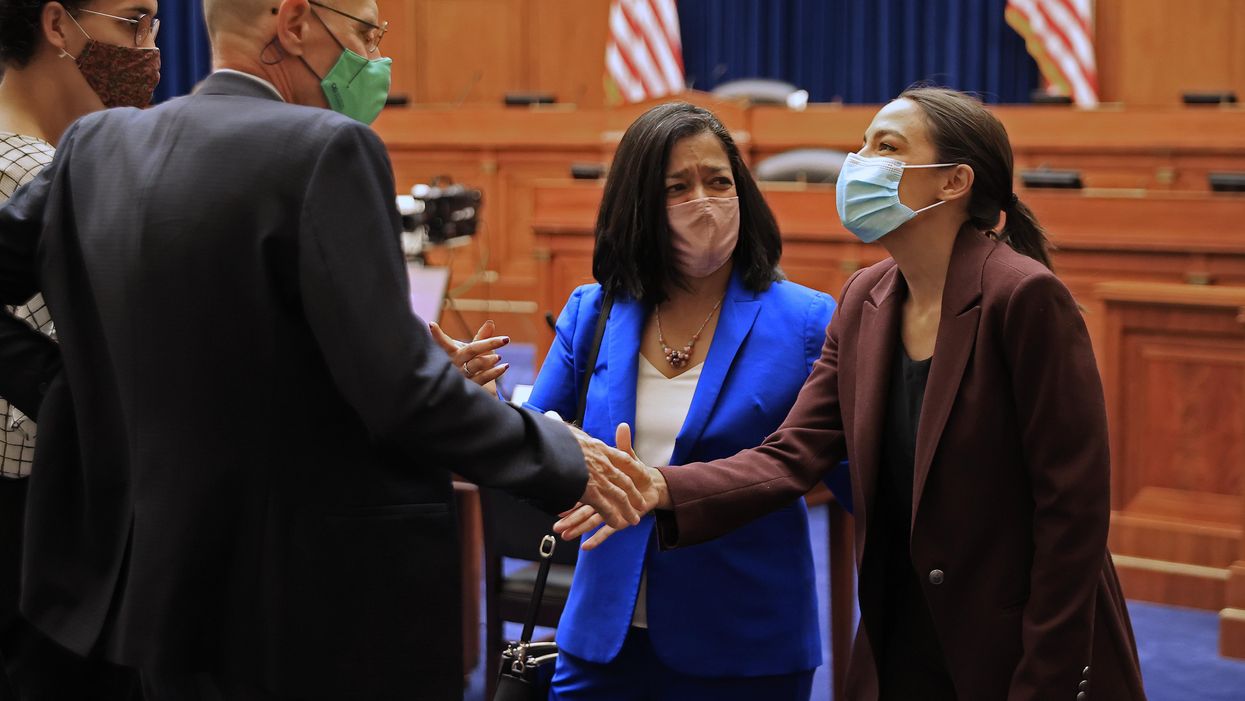Anderson edited "Leveraging: A Political, Economic and Societal Framework" (Springer, 2014), has taught at five universities and ran for the Democratic nomination for a Maryland congressional seat in 2016.
Sen. Bernie Sanders has rejected the idea of meeting one on one with Sen. Joe Manchin to try to resolve their differences over President Biden's $3.5 trillion proposed social services bill. When asked about it last week, Sanders said, "This is not a movie." On the other side, Manchin has not said if he supports the idea. Moreover, President Biden said, jokingly, such a meeting would lead to "homicide."
The current stalemate within the Democratic Party is not primarily a fight between the chairman of the Budget Committee (Sanders) and the centrist (some would say conservative) Democratic linchpin (Manchin). Whoever suggested these two men be put in a room to resolve their conflict may have been thinking about a movie about the 1950s or 1850s.
The reality of this historical drama is that the conflict is not only within the Senate or even centered around the Senate. After all, it was the House Progressive Caucus led by Rep. Pramila Jayapal and members like Rep. Alexandria Ocasio-Cortez who refused to vote in favor of the $1.2 trillion infrastructure bill until the Senate Democrats, notably Manchin and Kyrsten Sinema, supported the $3.5 trillion social services bill.
Even if Sanders and Manchin agreed to a figure, even one as high as $2.75 trillion, that doesn't mean Jayapal and other House progressives would be satisfied — or that Sinema would either.
In short, the conflict is not focused on two powerful men or the Senate. It also concerns powerful women, and it also concerns the House. The very idea that this is a two-man Senate fight is really absurd. Speaker Nancy Pelosi herself is thoroughly immersed in the conflict within her full House Democratic Caucus. If anything, it is the House Progressive Caucus, led by women, that has emerged as the major force in this two-chamber, progressive vs. centrist battle.
Moreover, the idea of putting Sanders and Manchin in a room together, at this stage, is stupid. While it would most likely not lead to homicide, it would probably be a nasty, brutal, loud discussion.
Last week I argued in The Baltimore Sun that House and Senate leaders needed to get together, at Biden's invitation, at Camp David. Indeed, I wrote that Manchin and Ocasio-Cortez needed to "talk under the trees" and be "in nature" outside of Washington. I was not joking. They had a terrible exchange via the media a few weeks ago. It is time for them to meet face to face in an unthreatening environment.
Sanders' outburst reinforces my belief that powerful men and women from both chambers need to join Biden not for a conference table meeting in D.C. but for less structured, more personal interactions ranging from taking a walk to playing shuffleboard.
Do the precise opposite of one-on-one meetings or traditional meetings with two camps represented. Many of the players barely know each other, if they know one another at all. I also argued that the bills in question are not Biden's bills but legislation actually owned by both chambers and the president. And I said make them for five years, not 10. To be sure, the details have to be worked out.
This is 2021 not 1950 or 1850. It's not an old boys' club matter, and there is not going to be a duel. But this drama has a good ending if all parties involved remember that our democracy, thanks to the other party, is on the verge of disintegration. The men and women in powerful positions need to leave their unwillingness to compromise in Washington and head off to Camp David and make the country proud.
It falls on President Biden to issue the invitations.




















Trump & Hegseth gave Mark Kelly a huge 2028 gift